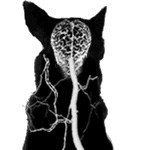Search - Research
51 - 60 of 210 results
-
A seizure or not a seizure, that is the question?
New study highlights difficulty of diagnosing seizures from owner-recorded videos. Study also finds the importance of additional clinical information alongside videos to make a diagnosis, and the need for robust seizure classification systems to differentiate between seizure typesNew research lead by the Royal Veterinary College (RVC) canine epilepsy clinic working together …
-
New study shows resistance to most clinically relevant antimicrobials is increasing in major canine skin pathogen
Researchers from the Queen Mother Hospital for Animals studying Staphylococcus pseudintermedius, the predominant dog skin pathogen, showed for the first time that resistance is increasing to the most clinically relevant antimicrobials.Results from a …Researchers from the Queen Mother Hospital for Animals studying Staphylococcus pseudintermedius, …
-
Hot Dogs – investigating the epidemiology of canine heatstroke presenting to UK primary care veterinary practices (Complete)
The project, funded by Dogs Trust, aims to improve our understanding of the incidence, underlying causes and risk factors associated with heatstroke in dogs. Emily Hall and Anne Carter at Nottingham Trent University are working in collaboration with … -
Canine health and welfare research funding in the UK: Current status and future opportunities (Complete)
This project, supported by four leading UK canine charities in partnership with the RVC, explored the levels and distribution of UK canine health research funding over the last decade, and analysed the areas of research this has included. Through … -
Big data from VetCompass reaffirms value of Pimobendan in management of canine heart disease
A new VetCompass study from the Royal Veterinary College (RVC) has confirmed the findings of previous studies, showing positive outcomes for pimobendan treatment in dogs with heart disease. The results – using a successful application of “target … -
Using Veterinary Practice Data to Improve Understanding of Canine Chronic Kidney Disease (In Progress)
The aim of this study is to describe the frequency, features and clinical management of CKD in dogs attending primary care practice and evaluate factors associated with CKD survival. -
Pre-owned pooches: Characterising commercial and private re-homing and re-selling systems for dogs aged > 16 weeks in the UK and implications for canine welfare (In progress)
This PhD project will explore the re-sale of dogs over 16 weeks old that are sold through online advertisements in the UK: the demographics of dogs advertised; the demographics, motivations, and experiences of their sellers and buyers; and how the … -
The International Feline Encephalitis Study Group - The seizuring cat
A seizure is defined as the clinical manifestation of excessive synchronous epileptic activity of neurons in the forebrain, typically resulting in transient motor, autonomic and/or behavioural signs. In cats, seizures represent one of the most … -
VetCompass™ study explores the classification, diagnosis, and clinical management of seizures in dogs
Substantial differences between epilepsy classification in clinical records and those assigned by researchers based on formal guidelines support the need for greater integration of diagnostic guidelines in clinical practice -
General Recordings
A selection of videos and other media about the work of VetCompass






.png?v=638503448332154707)
